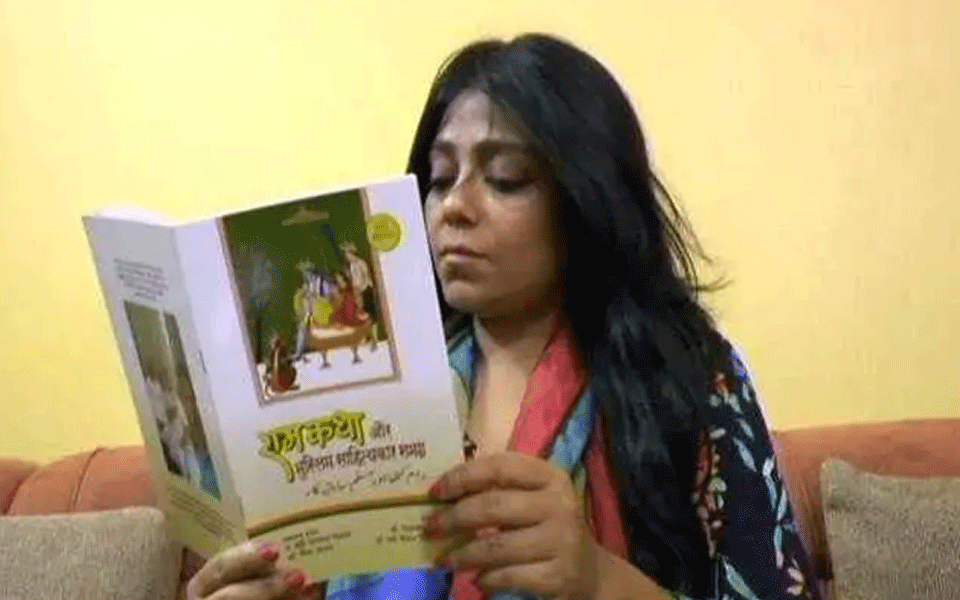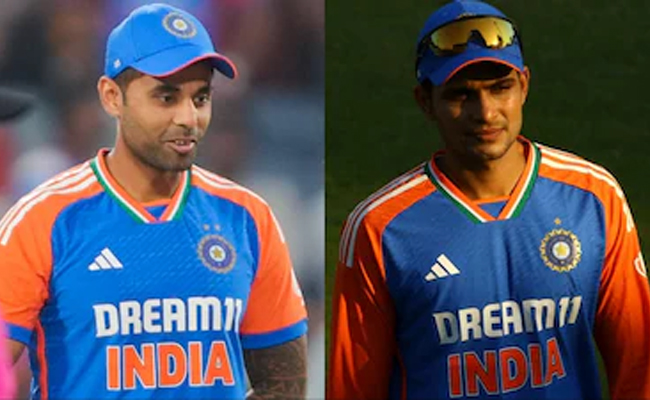KANPUR, July 01: Just like holy texts of all religions, Ramayana also gives us a message of peace and brotherhood, said Dr Mahi Talat Siddiqui who translated the text of Ramayana into Urdu.
Setting an example of inter-community harmony, a Muslim woman from Kanpur has translated the text of Ramayana into Urdu.
Dr Mahi Talat Siddiqui, a resident of Prem Nagar area, said that she wanted Muslim community to be aware of the goodness of Ramayana along with the Hindus.
Around two years ago, Badri Narayan Tiwari, a resident of Kanpur, gave a copy of Ramayana to Dr Talat, after which she decided to translate it in Urdu.
"Just like holy texts of all religions, Ramayana also gives us a message of peace and brotherhood. It has been written very beautifully. I felt relaxed and peaceful after writing the text in Urdu," Dr Talat told ANI.
She said that it took her more than one and a half years to translate it. She focused on the fact that the translations shouldn't change the original meaning of the text.
"Some people of the society spread violence by instigating religious issues, but no religion teaches to hate each other. People of all religions should live together with love and goodwill, and it is necessary that each other's religions should also be respected," she said.
Dr Talat, who holds master degree in Hindi Literature, said that she will continue to work on maintaining mutual harmony using the power of her pen.
Courtesy: www.ndtv.com
Let the Truth be known. If you read VB and like VB, please be a VB Supporter and Help us deliver the Truth to one and all.
Bengaluru (PTI): A 34-year-old mechanic has died after falling off a scooter on his way to a referral hospital, as the medical facility that diagnosed him to have suffered a heart attack did not provide necessary first aid, the family of the deceased claimed.
A CCTV video showing his injured wife pleading with passersby for help while her husband Venkataramanan lay on the road after falling from the two-wheeler on December 13 has gone viral recently.
According to the family, Venkataramanan complained of chest pain, and his wife Roopa rushed him on their scooter from their home in Balaji Nagar around 3.30 am to a private hospital where treatment was denied, citing the non-availability of a doctor, the family said.
Then, she took him to another hospital where ECG was done, which showed him to have suffered a heart attack. However they immediately referred him to the Jayadeva Institute of Cardiovascular Sciences. The family alleged that no basic treatment was provided there. On the way to Jayadeva hospital, Venkataramanan allegedly suffered chest pain again and the couple fell off the scooter, the family said.
In the CCTV video, injured Roopa can be seen pleading with passersby to help her husband reach the hospital, but no one responded until a cab driver stopped to check on them. With his help, she reached Jayadeva hospital, where doctors declared Venkataramanan brought dead, the family said. His family later donated his eyes.





